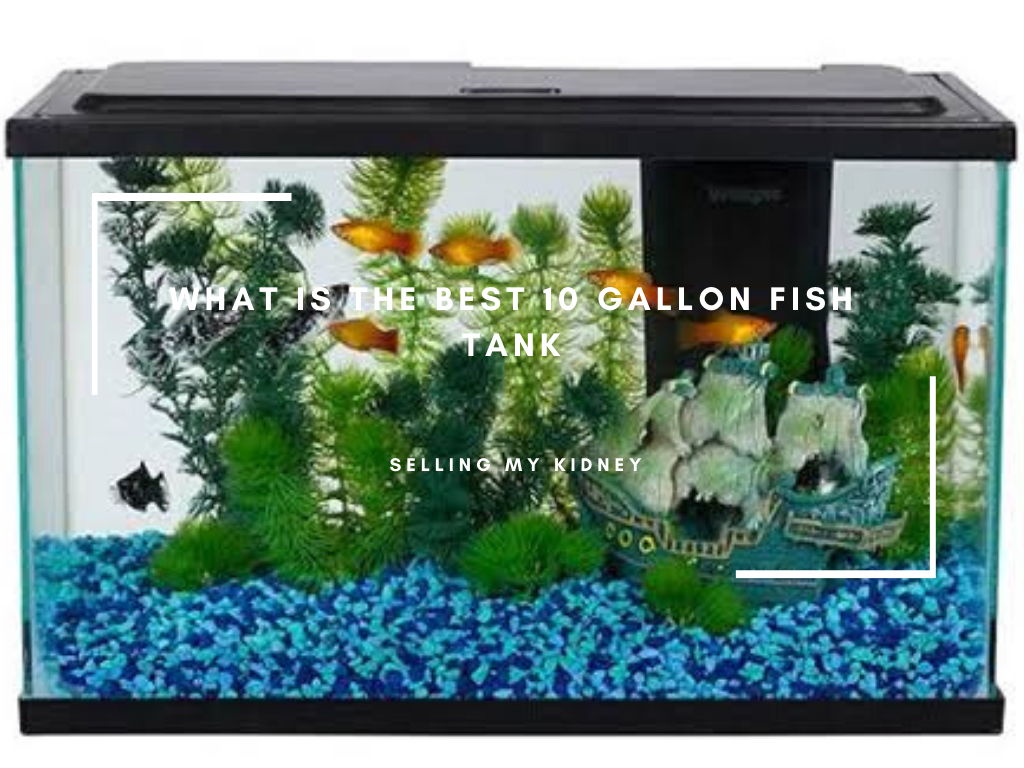Yes, you can turn off your aquarium filter at night!
It’s a great way to save energy and money.
Plus, it gives the fish in your tank some peace and quiet while they sleep.
Here are a few benefits:
- Reduced noise levels
- Improved water quality due to less debris being stirred up
- Fewer chances for mechanical failure or clogging from overworking the motor
Turning off an aquarium filter overnight is worth considering if you’re looking for ways to reduce costs without compromising care for your aquatic friends!
The Debate On Turning Off Aquarium Filters At Night: Pros And Cons
The debate on turning off aquarium filters at night has been ongoing.
On the one hand, proponents of leaving the filter running argue that it helps keep the water clean and oxygenated.
Opponents suggest this can cause too much stress on fish due to noise levels or other factors.
Here are a few pros and cons:
Pros
- Keeps tank cleaner by removing debris from the water column
- Helps maintain healthy bacteria colonies in biological media
- Oxygenates the water, which is beneficial for all aquatic life
Cons
- It can be not quiet if not properly insulated
- May create strong currents causing discomfort/stressful environment for fish
- Increases electricity costs over long periods
Ultimately, whether you turn your filter off at night depends largely on personal preference and your setup (freshwater vs saltwater).
It’sIt’s important to consider both sides before making any decisions so that you can ensure optimal health conditions within your aquarium!
Understanding The Impact Of Turning Off Aquarium Filters At Night On Fish And Plants
Turning off aquarium filters at night can greatly impact fish and plants.
It is important to understand the effects of this practice to keep your tank healthy:
- Fish need oxygen-rich water, so turning off the filter reduces their access to it;
- Plants also require oxygen for photosynthesis, but they can absorb some from air bubbles that form when you turn off the filter;
- Without filtration, bacteria will not be removed as efficiently, which could lead to an increase in ammonia levels – toxic for both fish and plants;
- Turning off lights during nighttime helps create natural day/night cycles beneficial for all tank inhabitants.
Examples include providing rest periods or encouraging spawning behaviour among certain species like cichlids.
Important facts about turning off aquarium filters at night:
- Oxygenation should still occur without mechanical filtration through surface agitation (e.g., bubblers) or live aquatic vegetation such as Anacharis or Hornwort.
- Use low-wattage LED lighting instead of fluorescent bulbs since these produce less heat than traditional incandescent lamps. Thus reducing stress on fish’s gills while allowing them more time out from hiding spots due to the lack thereof being too hot near light sources!
Experts Weigh In: Should You Turn Off Your Aquarium Filter At Night?
The answer is not as straightforward as it may seem, and there are pros and cons to both sides of the argument.
On the one hand, turning off an aquarium filter can reduce noise levels while saving energy costs.
However, on the other hand, leaving it running could help maintain water quality. It can be done by keeping debris from settling into crevices or corners that cannot be easily removed during regular maintenance cycles.
Pros for Turning Off the Filter At Night:
- Reduced Noise Levels – Fish tanks with filters often produce loud humming noises, which can disturb sleep patterns if left running all night long!
- Energy Savings – Running a tank’s filtration system 24/7 will increase electricity bills significantly over time, so shutting them down when no one is around makes sense financially too!
- Less maintenance Required – With less activity happening overnight (i.e., fewer food particles being added), this means less work needs to be done cleaning out clogged-up parts like sponges. to keep things functioning properly throughout each day cycle, periodic cleanings still need to occur though just not quite as frequently than without any breaks given between uses periods either way!
Cons For Leaving Filter On All Night Long:
- Water Quality Issues – Without constant circulation provided by active filtering systems, organic matter such as uneaten foods & waste products tend to settle more quickly. That leads to potential problems related to poor oxygenation within certain areas of the tank.
- Increased Wear Tear Parts Over Time – Keeping the same components working nonstop eventually lead wear tear issues, especially those made of plastic.
The Science Behind Aquarium Filters And Nighttime Use
Aquarium filters are an important part of keeping a healthy aquarium.
They help to keep the water clean and free from harmful bacteria, algae, and other contaminants that can be dangerous for fish.
The science behind these filters is quite complex, but understanding them will help ensure your tank stays in top condition!
There are two main types of filtration: mechanical and biological.
Mechanical filtration removes solid particles such as dirt or debris by trapping them on filter media like sponges or pads.
In contrast, biological filtration uses beneficial bacteria to break down Ammonia into nitrite and finally into harmless nitrogen gas.
That is released into the atmosphere through bubbles created by air pumps inside the filter system.
- Examples of mechanical filtering include sponge/pad type filters, under-gravel systems with powerheads attached at each end (to create suction), hang-on-back style external box units with replaceable cartridges containing activated carbon & zeolite crystals, ………………………………………………………………………………………………………………………………….…
- Biological filtration involves using live organisms such as Nitrosomonas species (which convert Ammonia) & Nitrobacter species (which convert nitrites).
These microorganisms need oxygenated water.
So they must have access to plenty of aeration via airstones connected directly to their tanks’ walls. Or they gain access indirectly via circulation pumps placed near the surface level.
This helps ensure optimal performance levels when running 24 hours per day during nighttime use too!
Aquarium Maintenance 101: How To Properly Turn Off Your Filter At Night
Aquarium maintenance is essential for keeping your fish healthy and happy.
Here are some tips on how to properly turn off your filter at night:
- Unplug the power cord from the outlet – this will ensure that no electricity flows through it while you’re away;
- Turn off any pumps or other equipment connected to the filter, such as a heater or air pump;
- Remove all media (carbon, ceramic rings, etc.
- ) from inside of the canister, so they don’t get damaged by running without water flow overnight;
- Make sure there’s enough oxygen in the tank before turning it off – use an airstone if necessary!
- This helps keep bacteria alive, which breaks down waste products produced by fish during their sleep cycle.
- Finally, close up any valves associated with the filtration system, like intake/outtake pipes and spray bars- these should be opened again when restarting the next day!
Doing this ensures optimal performance throughout the lifespan of the aquarium setup!
Nighttime Filtration: How It Affects The Water Quality In Your Aquarium
Nighttime filtration is an important part of keeping your aquarium clean and healthy.
It helps remove waste, toxins, and other debris from the water, so it remains safe for fish and plants.
Here are some ways nighttime filtration affects the water quality in your aquarium:
- Removes organic matter, such as uneaten food particles or decaying plant material which can cause ammonia levels to rise;
- Reduces nitrate levels by breaking down nitrogen compounds into harmless substances like oxygen;
- Helps maintain a balanced pH level by removing acids produced during respiration processes;
- Keeps tank inhabitants healthier with cleaner water free of harmful bacteria or parasites.
Nighttime filtration also provides beneficial aeration, which increases dissolved oxygen content in the tank – essential for all aquatic life!
Finally, regular maintenance will ensure optimal performance over time. That including regularly cleaning filter media (at least once every two weeks) and replacing worn-out parts when necessary.
With proper care, you’ll enjoy crystal-clear waters full of happy fish!
The Role Of Aquarium Filters In Oxygenation And How It’s Affected By Nighttime Use
Aquarium filters play an important role in oxygenation.
They help keep the water clean and debris-free while providing a steady supply of fresh air for fish and other aquatic life.
Filters draw water through them, trapping particles as they pass through filter media, such as activated carbon or sponges.
This process helps remove toxins from the tank environment, which can harm your fish’s health if left unchecked.
However, aquarium filters may not provide enough oxygenation at nighttime due to reduced activity levels among their inhabitants.
This is because most species are nocturnal. So they don’t require much energy during these hours leading up until dawn. That’s when their metabolism increases again, with more active behavior patterns observed throughout daylight hours!
Here are some tips on how you can ensure adequate aeration:
- Use an airstone – An airstone will create bubbles that increase surface agitation allowing for better gas exchange between the atmosphere and aquarium waters.
- Increase circulation – Increasing flow rate within tanks using powerheads or wavemakers ensures greater movement around all areas, including those at lower depths where there might otherwise be fewer access points available.
- Add live plants – Live plants act like natural filtration systems absorbing nutrients from waste products while releasing vital gases into surrounding environments creating healthier habitats overall!
Alternatives To Turning Off Your Aquarium Filter At Night
There are several alternatives to turning off your aquarium filter at night.
- You can reduce the filter’s flow rate by adjusting its output valve or using a smaller pump; this will help keep water movement and oxygen levels stable while still providing some filtration benefits.
- You could use an air-driven sponge filter which runs on low power but provides effective biological filtration without creating too much current in the tank.
- Adding live plants is another great way to provide natural biofiltration and additional oxygenation for fish health and well-being during nighttime hours when photosynthesis stops occurring naturally in aquatic environments.
- If all else fails, consider installing a timer switch so that your main aquarium filters turn themselves off automatically each evening – ensure it’s set correctly!
The Importance Of Monitoring Your Aquarium’SAquarium’S Water Quality When Turning Off The Filter At Night
When turning off the filter at night, you must monitor your aquarium’s water quality.
Here are some important facts to consider:
- Ammonia and nitrite levels can rise quickly without a functioning filter, leading to fish stress or death;
- Unfiltered water may become cloudy due to an increase in bacteria growth;
- Without filtration, oxygen levels will decrease as organic matter builds up over time;
- The pH level of unfiltered tank water could drop significantly if not monitored regularly – this affects how well certain medications work on sick fish!
You must monitor these parameters closely while running no-filter nights – here’s what you should do:
- Test Ammonia and nitrites daily with test strips/kits (or use electronic monitors);
- Check for cloudiness by looking into the tank each day before lights out;
- Measure dissolved oxygen using either a handheld meter or digital reader every few days during no-filter periods;
- Monitor pH weekly throughout any period where filters aren’t being used.
By doing so, you’ll be able to detect changes early enough that corrective action can be taken if needed!
This helps ensure healthy living conditions for all aquatic life within your aquarium.
Troubleshooting Common Problems That Arise From Turning Off Aquarium Filters At Night
Troubleshooting common problems that arise from turning off aquarium filters at night can be tricky.
Here are some tips to help you out:
- Check the filter for clogs or blockages – these could prevent water flow and cause a buildup of waste in your tank, leading to poor water quality;
- Make sure all hoses and connections are secure – if they lose, it will reduce the efficiency of filtration;
- Monitor ammonia levels closely – when an aquarium filter is turned off overnight, there may not be enough oxygen present which can lead to high concentrations of toxic Ammonia building up in the tank;
- Test pH regularly – sudden changes in pH due to lack of aeration caused by switching off a filter might harm fish health over time;
- Check temperature stability – without proper circulation provided by running filters during nighttime hours, temperatures may fluctuate too much, causing stress on aquatic life forms inside your tank!
In Summary: Can I Turn Off My Aquarium Filter At Night?
In conclusion, turning off your aquarium filter at night is generally not recommended.
This can cause a buildup of waste and toxins in the water, harming fish health.
Turning off the filter may also disrupt beneficial bacteria colonies that help keep tank parameters stable and healthy.
It’s best to leave your aquarium filter running 24/7. This will ensure optimal filtration performance and provide oxygenation throughout the day and night!
Leaving an aquarium filter on all hours of every day provides peace of mind knowing my aquatic friends are safe from harm:
No more worrying about ammonia spikes or other dangerous conditions caused by a lack of proper filtration!




